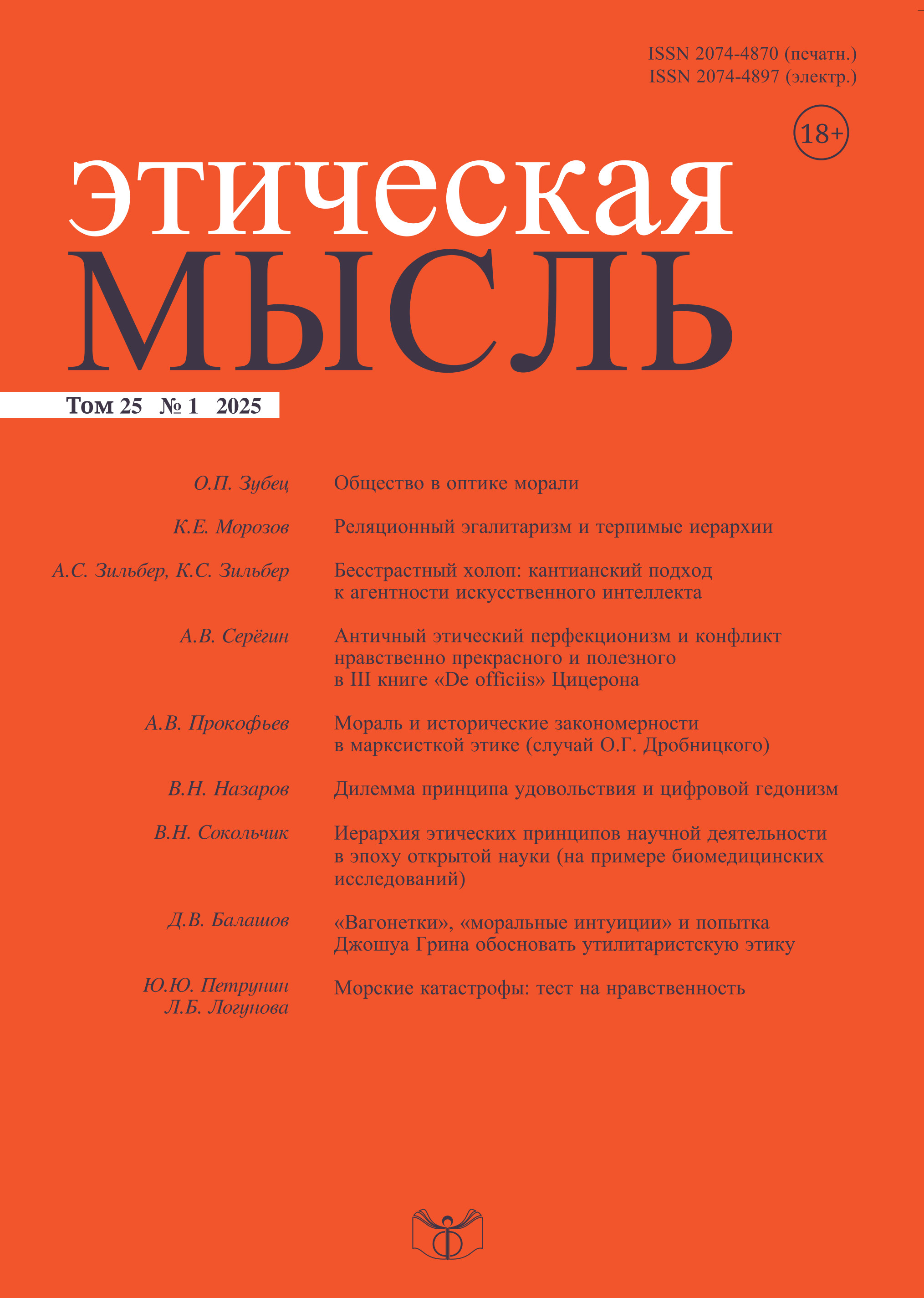Hierarchy of Ethical Principles of Scientific Activity in the Era of Open Science (Based on Biomedical Research)
DOI:
https://doi.org/10.21146/2074-4870-2025-25-1-111-124Keywords:
post-non-classical science, ethical principles of scientific activity, principles of bioethics, scientific integrity, open science, research ethics committees, dissemination of research results, AI, values, hierarchyAbstract
The article is devoted to the discussion of the ethical principles of current scientific knowledge. Ethical support of research becomes extremely important in the situation of post-non-classical science, since it requires the correlation of our knowledge not only with the global goals of scientific development, but also with the values of human, society, and nature. The author considers that the basic principles of bioethics – personal autonomy, justice, non-maleficence and beneficence – are the ethical basis and goal of scientific activity. As the “core” of the current research and scholarly ethics we consider the principles of ethos of science, which were outlined by R. Merton, which are rethought currently in documents of international research communities and supplemented by the principles of research integrity, etc. On the author’s opinion, the finalization of the structure of research ethics can be the principles of open science, which make it possible to connect the values of science with the values of social development. To create a holistic picture of the ethical support of scientific knowledge of the XXI c., ethical principles, rules and criteria for conducting research using artificial intelligence, principles and rules for research in a specific scientific sphere (for ex., in the field of biomedical research), as well as additional requirements for the ethical support of open science are also identified. Considering the ethical foundation of researchers in the field of biomedical knowledge and the activities of research ethical committees conducting humanitarian (ethical) review of research, the author comes to the conclusion that the widespread opinion of biomedical professionals about the need to strictly comply only the rules for conducting medical research, does not meet current requirements of modern science and it does not enough for understanding the purpose, value, method, dissemination of results, etc. The need for correlation, coordination and understanding of the ethical values (principles, rules, criteria, etc.) given in the article becomes the basis for the education of a modern researcher and at the same time for the activities and trainings of research ethics committees’ members.









